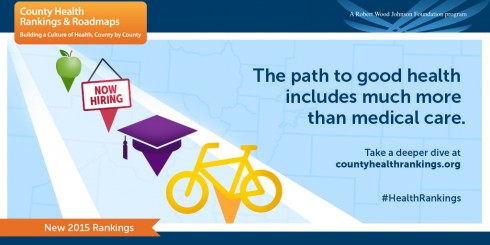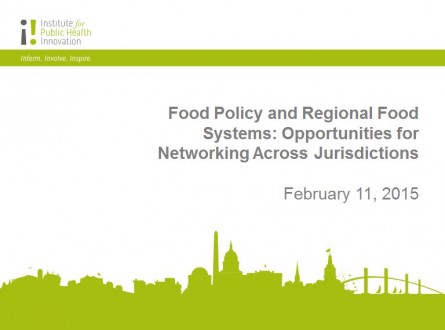FOR IMMEDIATE RELEASE
Virginia Stakeholders Gather to Promote the Training and Employment of
Community Members as Part of the Healthcare Workforce
Frontline Community Health Workers Provide a Cost-Effective Strategy to Improving the Public’s Health
FREDERICKSBURG, VA. (April 1, 2015) — Dozens of community health workers and stakeholders will participate in a much anticipated forum on Wednesday, April 1, 2015 entitled Investing in Community Health Workers: Advancing Virginia’s Health, Reducing Cost, and Improving Quality. The 1-day event, to be held at the Fredericksburg Hospitality House Hotel and Conference Center, is organized by the Institute of Public Health Innovation, in partnership with the Virginia Department of Health and an advisory group of community health workers and health services leaders.
The forum aims to increase awareness about the roles of community health workers in bridging health care and population health in Virginia. As defined by the American Public Health Association, a community health worker (CHW) is a trained frontline public health worker who is a trusted member of and/or has an unusually close understanding of the community served. This trusting relationship enables the CHW to serve as an intermediary between health/social services and the community to facilitate access to services and improve the quality and cultural competence of service delivery.
Freddy Zambrano, Community Health Worker placed at Fredericksburg Area HIV/AIDS Support Services and member of the Forum’s Advisory Group, heralded the event as an opportunity to build upon ongoing work in Virginia and across the region. Freddy stated, “The Forum will allow us to raise awareness among policy makers, health care and social service providers, and the general public about the importance of hiring community health workers and supporting efforts such as professional certification and financing that are central to the sustainability of this innovative workforce.” The Forum will address the role of community health workers in improving community health and supporting financially sustainable, quality health care and service delivery systems.
Among others, participants and speakers will include:
- Community health workers from across Virginia;
- State agencies such as the Virginia Department of Health and Department of Medical Assistance Services;
- Representatives from Federal agencies such as the Centers for Disease Control and Prevention and the Center for Medicare and Medicaid Innovation;
- Academic institutions from across Virginia;
- Virginia Community Healthcare Association and others representing community primary care providers; and
- Community-based organizations.
Virginia’s “Investing in Community Health Workers” Forum is one of four state forum initiatives taking place nationally with funding from the National Network of Public Health Institutes (NNPHI) and the Robert Wood Johnson Foundation. IPHI and three other public health institutes supported by NNPHI are exploring innovative ways to bridge public health strategies and health care systems to improve community health. “Finally, the community health worker profession is beginning to get the attention it deserves as a critical resource within our health and social service systems. IPHI looks forward to working with leaders across Virginia to help build and lift up this essential workforce,” said Michael Rhein, President & CEO of IPHI.
Following the forum, participants can remain active by getting involved in the Virginia CHW Advisory Group and a new statewide CHW professional association. Participants may also help develop a multi-sector awareness campaign on the role and benefit of CHWs, and many will support efforts within their organizations to employ and utilize CHWs.
For additional information about the Forum and related work, contact IPHI’s Center for the Community Health Workforce at cchw@institutephi.org.
About the Institute for Public Health Innovation: The Institute for Public Health Innovation (IPHI) builds partnerships across sectors and cultivates innovative solutions to improve health and well-being for all people and communities across Virginia, the District of Columbia, and Maryland, particularly those most affected by health inequities. IPHI is the official public health institute serving the region, and is a leading expert in the training and utilization of community health workers in health care delivery. IPHI has trained over 250 CHWs in the last 4 years and directly supports dozens of CHWs through its various initiatives.
###


